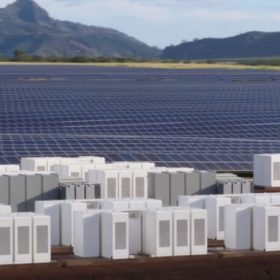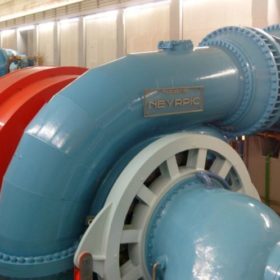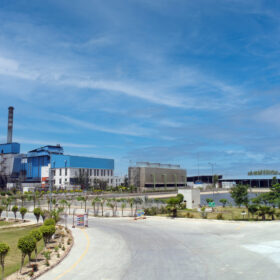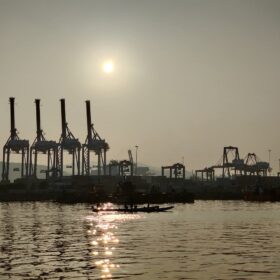JSW Energy secures Letter of Intent for 192 MW wind-solar hybrid power project
JSW Neo Energy has received a letter of intent from Gujarat Urja Vikas Nigam Ltd to set up a 192 MW grid-connected hybrid wind-solar power project, including an additional 96 MW under the green shoe option.
REC posts its highest Q1 profit of INR 3,442 crore
REC has reported total income of INR 13,037 crore and net profit of INR 3,442 crore for April-May-June quarter of FY 2024-25.
Tata Power Solar partners Bank of India for low-cost finance to rooftop solar and EV charging station customers
Tata Power Solar Systems has partnered with Bank of India to provide affordable and easy financing solutions for its customers looking to invest in rooftop solar or electric vehicle (EV) charging infrastructure.
SECI allocates 630 MW renewables-plus-storage at average price of $0.059 /kWh
The winning developers will set up renewable energy projects backed with energy storage system to supply a cumulative 630 MW of firm and dispatchable renewable power in a demand-following manner.
Sterling and Wilson Renewable wins 1 GWh battery storage, 20 MW floating solar projects
Sterling and Wilson Renewable Energy Ltd has secured the EPC contracts for a 1 GWh standalone battery energy storage project in Rajasthan and a 20 MW floating solar plant in Karnataka.
SJVN secures 2.4 GW pumped storage project in Mizoram
SJVN has received a Letter of Intent for developing a 2.4 GW pumped storage project in Mizoram. The pumped storage project has been proposed across Darzo Nallah, a tributary of Tuipui river.
KPI Green secures Letters of Intent for 917 MW DC of solar, hybrid RE projects
KPI Green Energy has secured a cumulative solar capacity of 250 MW AC (275 MW DC) and hybrid RE power projects of 370 MW AC (642 MW DC) in Gujarat Urja Vikas Nigam Ltd’s recent tenders.
SAEL issues $305 million in green bonds
The solar and waste-to-energy company intends to use the proceeds to refinance its existing debt and fund capex of future renewable projects.
Adani Green net profit for Q1 up 95% YoY
Adani Green Energy has reported a total income of INR 3,122 crore ($372.83 million) and consolidated net profit of INR 629 crore for the first quarter of FY 2024-25.
Fluence expands digital services center for energy storage assets
Fluence has set up a new remote monitoring and diagnostics center in India. The center leverages digitization, artificial intelligence, and Fluence’s Nispera asset performance management software to help deliver value to energy storage owners.
















